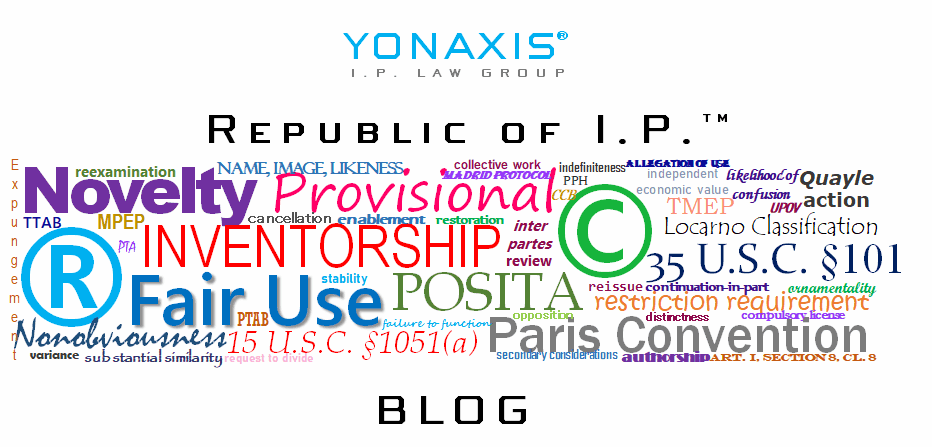The concept of distinctiveness is important under trademark law because it is one of the requirements for a federally registered mark. Distinctiveness goes to the strength of the mark. In theory, the more distinctive a mark, the more likely it is capable of identifying and distinguishing against all other sources of goods and services used …
Category: section 2(f)
Except as expressly excluded in subsections (a), (b), (c), (d), (e)(3), and (e)(5) of this section, nothing in this chapter shall prevent the registration of a mark used by the applicant which has become distinctive of the applicant’s goods in commerce. The Director may accept as prima facie evidence that the mark has become distinctive, as used on or in connection with the applicant’s goods in commerce, proof of substantially exclusive and continuous use thereof as a mark by the applicant in commerce for the five years before the date on which the claim of distinctiveness is made. Nothing in this section shall prevent the registration of a mark which, when used on or in connection with the goods of the applicant, is primarily geographically deceptively misdescriptive of them, and which became distinctive of the applicant’s goods in commerce before December 8, 1993.
Fed Circuit Watch: TTAB Fails Genericness Test
In a rare review of a Trademark Trial and Appeal Board (TTAB) case, the Court of Appeals for the Federal Circuit vacated and remanded the decision in Royal Crown Co., Inc. v. The Coca-Cola Co.,[1] involving the doctrine of trademark genericism. The Fed Circuit panel found fault with the TTAB’s analysis of the test for …
